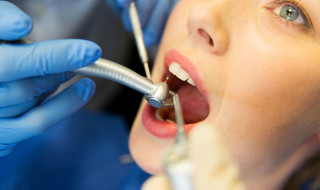
An increase in NHS dentistry fees and a barely negligible pay rise for dentists will not improve the oral health of the nation, Seb Evans says.
Last week the government announced a 5% jump in NHS dental fees.
The cost of basic dental care will rise by 80p to £19.70 from 1 April and by a further 90p to £20.60 in 2017-18, a written parliamentary statement said.
Henrik Overgaard-Nielsen, chair of the General Dental Practice Committee (GDPC), explained that this charge was initially brought in to limit the demand for NHS dentistry.
NHS charges have now unfortunately become the norm in dentistry and there was only one direction these charges were going to go if the government was going to change them at all.
If the extra money from these charges was ring-fenced to be reinvested into preventive schemes, reducing the number of children visiting hospitals with tooth decay, I personally think dentists and patients would have welcomed the rise.
This would have saved the NHS money in the long run too, as proved by the Childsmile scheme in Scotland.
But I feel this rise will only deter more people from visiting the dentist, without any money raised being reinvested back into preventive measures.
Pay rise for dentists
A pay rise was announced for dentists at around the same time, the DDRB recommended a 1% pay rise for dentists working in the NHS.
The real time decline in dentists’ wages is well documented, with Robert Donald claiming that dentists in Scotland have seen a real-time pay cut of £16,000 from 2009 to 2013.
A 1% pay rise is insulting for dentists who work hard every day to offer the type of treatment the NHS promises to patients and the type of treatment it expects dentists to provide.
I struggle to see how the government expects a purely NHS-based practice to earn enough to cover the costs of having all the necessary equipment in a dental practice, keep the staff’s CPD up to date, make sure all the procedures for infection control are up to date and being done properly, pay all the necessary regulators their fees every year and then pay the staff an attractive salary to make sure they don’t leave to move purely into private practice.
This money goes towards more than just dentists’ pay.
Sugar tax
Finally George Osborne’s announcement of a sugary drinks tax has been all over the news this week.
The tax will look to raise £520m by taxing sugary drink producers.
The government claims the money from the sugary drinks tax will go to primary school sports in a measure to help reduce obesity.
I’ve mentioned it before in a previous comment, obesity is not caused by consuming too much sugar.
Sugar is just one nutrient, a lack of exercise and too many fast food restaurants are larger contributors to obesity in the UK.
I’m sure reinvesting the money raised from the tax back into primary sports education is the government’s way of attempting to combat the lack of exercise in children’s lifestyles.
But I don’t think the average two hours of primary sports education provided by schools every week will really change the nation’s increasingly sedentary lifestyle and have the government’s intended impact on obesity.


